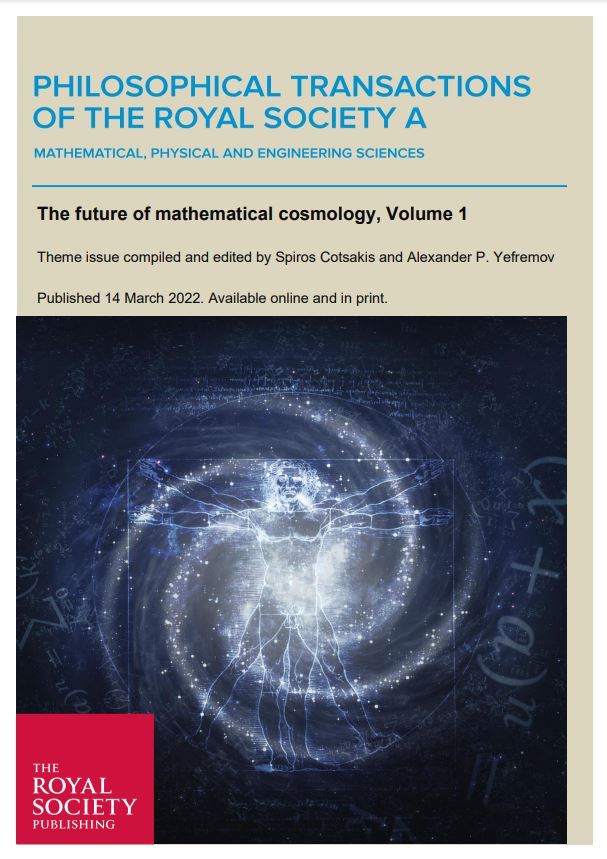RUDN researchers have prepared for publication a special issue ‘THE FUTURE OF MATHEMATICAL COSMOLOGY’ of the world’s oldest scientific journal Philosophical Transactions of the Royal Society (Proceedings of the British Academy of Sciences)
This world’s oldest scientific journal has been published without interruption for more than 350 years — since 1665.; great physicists and mathematicians Newton, Boyle, Huygens, Leibniz published their works in it. Currently, an article can be published in this journal only at the invitation of the Academy.
The thematic issue is published in two volumes and contains more than 20 articles.
As authors, the editors of the issue invited and received the consent of the world’s leading scientists and specialists in the field of theoretical and mathematical physics, among them Robert Brandenberger (Canada), Susan Scott (Australia), James Eisenberg (USA), Kirill Bronnikov (Russia) and many others.
The preface to the issue, as well as the fundamental review article “100 years of Mathematical Cosmology: models, theories and problems” were written by S.Kotsakis and A.P.Yefremov.
In general, the issue contains six scientific publications of RUDN scientists.
A brief introduction to the thematic issue says:
What are the main achievements in theoretical cosmology in the past 100 years? What is its present status and future prospects? What do we know about the big bang, dark energy, the future of the universe, the shape of spacetime, the multiverse, and the quantum nature of the cosmos?
Mathematical cosmology was born in 1917 when Einstein showed us how to build entire universes consistent with the laws of physics. Since then, it has developed into a fascinating field providing explanations for the new data and observations.
This theme issue is the first devoted solely to the intricate nature of the universes and the deep research uncovering the mysteries of this most majestic science, our home.
Products derived from microalgae represent a cutting-edge development in the field of bioeconomy. The potential of this biological resource was discussed at the international research seminar “Foundations for a Green Sustainable Energy”, part of the BRICS Network University’s thematic group on “Energy”. The event was organized by the Institute of Ecology at RUDN University.
Ambassadors of Russian education and science met at a conference in RUDN University to discuss how they can increase the visibility of Russian universities and research organizations in the world, and attract more international students in Russia.
The international scientific seminar hosted by RUDN Institute of Ecology “Experience of participation in student organizations as a way to form career skills” united scholarship recipients of the International Student Mobility Awards 2024 and Open Doors, along with members of the scientific student society “GreenLab” and the professional student association “Kostyor (Bonfire)” shared their projects focused on environmental protection.
